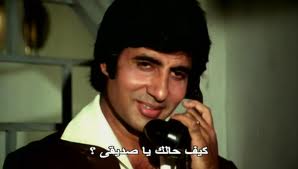
I came across two articles that speak volumes about the reality of how culture, particularly pop culture, is transmitted from one country to others (and how the US is much less dominant than some triumphalist voices assume and proclaim).
1. “Soft Rock Power” in Foreign Policy reports on the work by Joel Waldfogel and Fernando Ferreira of the University of Pennsylvania’s Wharton School that measure’s national cultural power via songs placing on pop music charts:
The top six are:
1. Sweden
2. Britain
3. United States
4. Japan
5. Finland
6. Canada
It is probably a surprise to some to see the US at #3 instead of #1. Britain’s continued strength is no surprise at all. And given the methodology and pop music trends, I am not surprised to see Sweden and Finland on the list (small economies and vibrant overseas markets for their American-style pop music). Canada makes sense given the continued flow of successful pop artists who excel on the pop charts. But Japan is a surprise. To break into the big pop music markets requires singing in English and to my knowledge that is not the case for most Japanese artists. Given the size of the Japanese economy (#2 in the world for the period of this analysis and recently slipped to #3 behind China) is it the case that their domestic pop market is large enough to put them on this list with virtually no pop exports?
On a related note, for more on music and global affairs, follow Robert Nolan’s excellent FPA blog on the subject – here.
2. John Brown’s Notes and Essays has a post on Bollywood and US Public Diplomacy.
In connection with the assumption that American popular culture is historically bound to dominate the 21st century world (a view with which I take some exception: [see (1) (2)]), the below article by a subtle, experienced Indian ambassador who served in Africa during the last years of the past millennium, has some relevance to American public/cultural diplomacy today, which has a tendency (true, not shared by everyone involved in that activity) to assume the inevitability of everything culturally “American” becoming global/universally accepted
The article, “Mohammed Rafi of Africa,” by Ambassador K. Gajendra Singh, looks at the consistent and wide appeal of Indian films and pop music across Africa – and beyond. This very much aligns with my own experience living in North Africa. I recall going to see “Dances With Wolves” with French subtitles at a half-filled (and over-air conditioned) movie theater in Tangier. The next time I saw a film in Tangier it was a Bollywood production, with Arabic subtitles. The theater was packed, no air conditioning at all, with people thoroughly (and raucously) enjoying the film. Indian pop music played in many cafes and cassettes were for sale on the street. Such sales across Africa are not registered on the pop charts that Joel Waldfogel and Fernando Ferreira examined. If they were, I am certain India would be on their list.